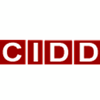When biological diversity is high, vectors often transmit pathogens to hosts that don't pass them on: the chain of transmission is broken. This "dilution effect" afforded by non-competent hosts may play a role in the containment of many vector-borne pathogens — including malaria, West Nile Virus and Tick-Borne Encephalitis.
Lyme disease is another example. Ticks transmit the bacteria that cause Lyme disease (Borrelia burgdorferi). The ticks (Ixodes spp.) feed on various mammal species, but are more likely to pick up bacteria from some of them, such as white-footed mice (Peromyscus leucopus). Squirrels, chipmunks, foxes, weasels and coyotes are all less likely to pass the bacteria to a tick. More ticks carry the Lyme bacteria when mice (above) are abundant and other species are rare
A CIDD workshop brought together a range of disease ecologists to discuss how biological diversity can affect the spread of pathogens. A paper written during the workshop captures some of the key issues.
The authors point out that human activities often reduce biological diversity — and so could increase the prevalence of some important diseases. Anthropogenic habitat fragmentation and degradation can favor the host species most likely to transmit pathogens to vectors, and thence to humans or livestock.
So it seems that maintaining species-rich ecosystems may not just be a worry for environmentalists, but for physicians and veterinarians too.
Publication Details
Andy Dobson, Isabella Cattadori, Robert D. Holt, Richard S. Ostfeld, Felicia Keesing, Kristle Krichbaum, Jason R. Rohr, Sarah E. Perkins, & Peter J. Hudson
Sacred cows and sympathetic squirrels: the importance of biological diversity to human health
Journal: PLoS Medicine
3: e231
DOI Reference




